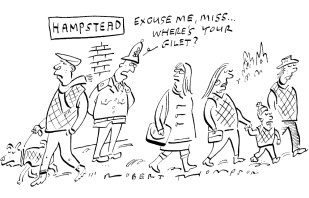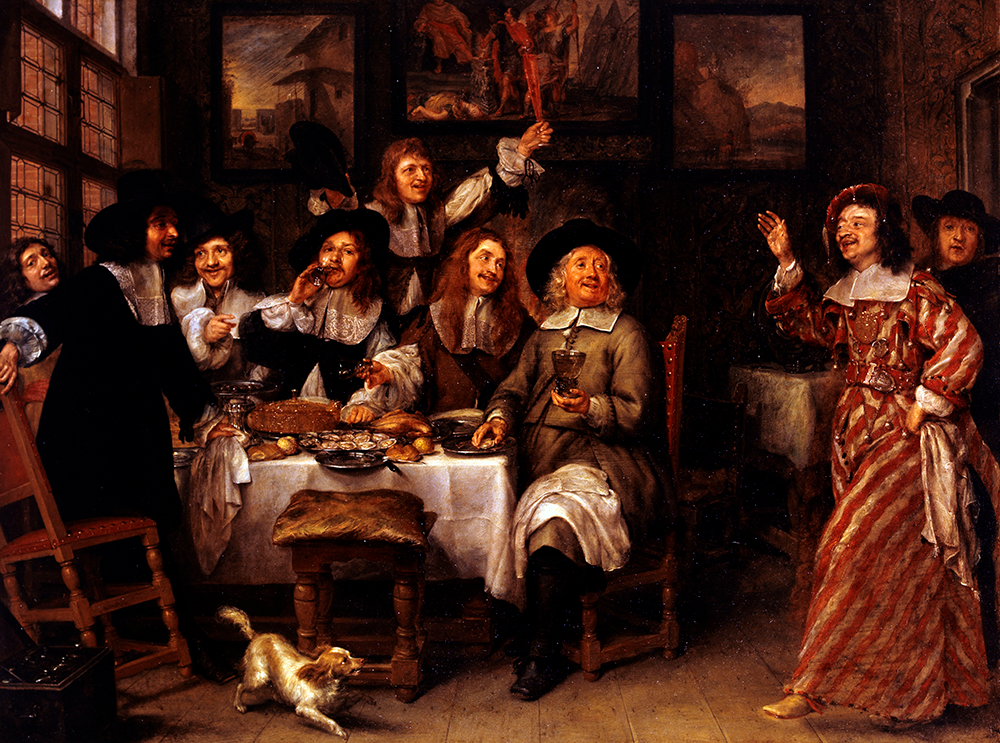The world is in an even greater mess than was apparent. I am not referring to Ukraine, Gaza, Sudan or other swamps of mayhem and misery, although they are bad enough. No: the new crisis is in France, and it has two malign and reinforcing aspects. First, large numbers of the younger French have given up drinking wine. It is not clear what they are substituting: Coca-Cola, perhaps. If so, God help us (and them). A Frenchman who does not drink wine is a disgrace to his history and heritage. After the liberation in 1944, and in order to punish collaborators, the new French government created a crime: indignité nationale. As it is presumably still on the statute book, it could surely be used to bring condemnation on those who collaborate with teetotalism, or Coke.
Yet the rest of us can find some consolation. In Bordeaux, at least as regards quantity, they have had a terrible harvest for the second year in succession. If demand for wine had not fallen, there would have been an obvious remedy: even higher prices. Yet in view of the youngsters’ defection, that will not work. A lot of vineyards are losing money. Some of the smaller ones are even grubbing up vines. But at least the bottles which are available should be reasonably priced. Although reports on the quality are varied, there ought to be good buys.
Ranald’s romanticism expresses itself in the promotion of Scottish produce
We enjoy teasing the grenouilles. That sweet enemy – yet at least we acknowledge the sweetness. It is a bit like making fun of the Australians. Do the barmy army still chant ‘You all live in a penal colony’? One hopes so, although it looks as if that may fall a bit flat during this Test series.
In both cases, there is residual affection. So we can hope that the French young recover their sanity, while Persephone is allowed to spend more time on the Earth’s surface in order to attend to the French climate.
In the meantime, we must find other growers. Every year, my friend Ranald Macdonald holds a luncheon which is a highly prized ticket in hedonistic circles. It takes place on the Isle of Dogs: vaut le voyage. In the early Middle Ages, his forbears were romantics and seafarers. He denies that they rivalled the Vikings in rape and plunder. Other clans, descendants of their victims, tell a different tale. Today the romanticism expresses itself in the promotion of Scottish produce, which would grace any dinner table, as Ranald has proved in his restaurants over many years. He also has one of the world’s finest collections of Scotch whisky.

As for the seafaring, today’s version is regular trips to Cuba for cigars and to Latin America for wine. I have already praised Santa Rita from Chile. Ranald thinks it is the finest wine produced in South America, and it is easy to taste why. Indeed, it is winning awards in international competitions.
We tasted the Chardonnay, the Cabernet Sauvignon – both Gran Riservas – and a Carmenère. All of them were on the verge of maturity but have plenty of years to go. They are still competitively priced – if you can find them – but with wines of this high class, the price is bound to rise with the growing reputation.
Ranald’s bar experts produce an admirable selection of cocktails, often abetted by a drop of the cratur, and a rediscovery. A few years ago, I thought that although Glenfiddich had the prettiest bottle in the Highlands, the contents were not so good. I found it too sweet and caramelly. That has changed. All their vintages are excellent. Kirsten Grant Meikle, from the Grant family, has played an important role in all this. She is clearly one of the most promising whisky-makers in Scotland. I shall return to the subject. Meanwhile, Ranald, scion of Clanranald, as fine a host as there can be. Lang may yer lum reek.


Dining and Cooking